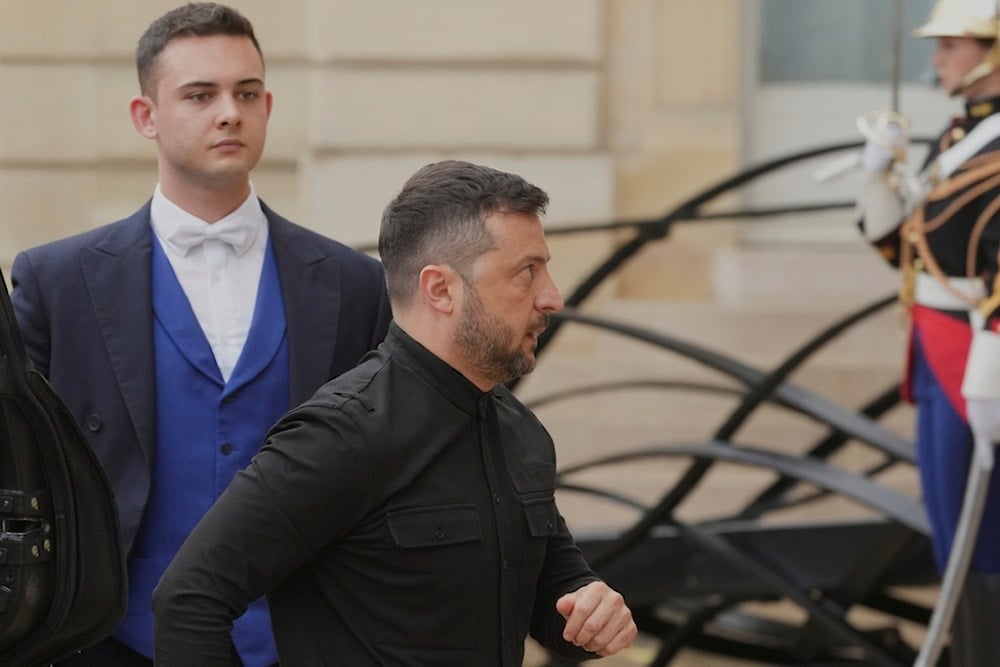Zelensky urges strong US response after largest Russian strike on Kiev
Zelensky called for a strong US response after Russia launched its largest aerial assault on Ukraine, killing four and setting Kiev’s government complex ablaze.
-

Ukraine's President Volodymyr Zelensky arrives for a summit on Ukraine at the Elysee Palace, in Paris, France, Thursday, September 4, 2025. (AP)
Ukrainian President Volodymyr Zelensky on Sunday called for a strong US response after Russia launched its largest aerial barrage since the conflict began, killing four people and setting fire to government buildings in Kiev.
In his evening address, Zelensky stressed the importance of international solidarity, saying, “It is important that there is a broad response from partners to this attack today. We are counting on a strong response from America. That is what is needed.”
The overnight assault marked the heaviest strike of the three-and-a-half-year war. Flames engulfed the government complex housing Ukraine’s cabinet of ministers in central Kiev, the first time the site has been targeted. Emergency services reported additional damage to high-rise buildings across the capital.
According to Ukraine’s air force, Russia launched at least 810 drones and 13 missiles between late Saturday and early Sunday, breaking previous records.
Moscow, however, denied targeting civilians. The Russian Defense Ministry claimed its strikes were limited to a plant and a logistics hub in Kiev, insisting “no strikes were carried out on other targets within the boundaries of Kiev.”
The unprecedented assault underscored both Russia’s escalation and Kiev’s increasing reliance on Western support, with Zelensky pressing Washington for decisive action to counter Moscow’s offensive.
New talks, old demands
A major obstacle in the stalled peace talks is the control of land captured by Russia, with Ukraine demanding a ceasefire before discussing territory, while Russia refuses to stop fighting until a complete deal is made.
Responding to the recent peace efforts led by US President Donald Trump with what he characterized as "old ultimatums," Ukrainian Foreign Minister Andriy Sybiga claimed that Russia was not engaging constructively.
"Russia has not changed its aggressive goals and shows no signs of readiness for meaningful negotiations," he stated, adding, "It's time to hit the Russian war machine with severe new sanctions and sober Moscow up."
Following its role as a host for three rounds of direct Russia-Ukraine talks, Turkey reported last week that Russian President Vladimir Putin had proposed freezing the front lines in the southern Kherson and Zaporizhzhia regions on the condition that Ukraine completely relinquish its claim to the Donetsk region.
An analysis of Institute for the Study of War (ISW) data conducted by AFP reveals that Russia already maintains almost total control over the Lugansk region while also controlling approximately 80% of the Donetsk region.
In addition to its gains in the east, Russian forces have also captured large swathes of the Kherson and Zaporizhzhia regions, though the regional capitals remain under Ukrainian control.

 3 Min Read
3 Min Read











